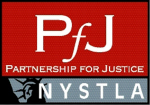 The New Year has already brought a change for the better for people with long-term disabilities who reside in New York State thanks to the availability beginning this year of tax-free ABLE accounts to fund medical, housing, education, transportation and other expenses related to their disability.
The New Year has already brought a change for the better for people with long-term disabilities who reside in New York State thanks to the availability beginning this year of tax-free ABLE accounts to fund medical, housing, education, transportation and other expenses related to their disability.
These ABLE accounts are structured along the lines of other tax-advantaged savings accounts, such as the popular 529 college savings account, where earnings from contributions (subject to a $14,000 annual limitation) can accumulate on a tax-free basis. Made possible by federal legislation introduced back in 2014, the New York legislature passed its enabling bill last year, with New York becoming the 20th state thus far to make these useful accounts available for use by qualified disabled residents.
We see these ABLE accounts as a very useful tool that can now be included in helping to devise an effective financial plan for clients as part of an overall structured settlement. In comparison to special needs trust, ABLE accounts have a significant advantage from the client’s point of view because they do not relinquish control over funds in the account to a third party administrator. Otherwise, the ABLE accounts provide a similar benefit as a more formal trust structure inasmuch as the beneficiary remains eligible for Medicaid and, so long as total assets in the account do not exceed $100,000, can continue receiving SSI benefits.
Of course, as with any tax driven deal, there are some important limitations to keep in mind. To start with, these ABLE accounts are exclusively available for people with severe doctor-certified disabilities that were incurred prior to age 26 and who qualify for needs-based benefits. Individuals over age 26 are eligible subject to providing suitable documentation that establishes their disability was incurred before their 26th birthday.
Subject to these qualifying restrictions, though, we think the benefits of ABLE accounts are compelling and should be made part of a financial settlement plan for clients whenever possible. It’s a new option that provides much greater financial flexibility but at the same times allows beneficiaries to retain their health insurance and other needs-based assistance.
It is important, however, to coordinate the use of an ABLE account as part of an overall and integrated financial plan. Among other things to consider, excessive amounts of cash should not be permitted to accumulate in an ABLE account because these accounts remain subject to a payback provision, which means that when the account beneficiary dies, the remaining funds must first be used to reimburse the state for the person’s Medicaid expenses.
A large financial settlement calls for careful structuring and planning and that’s an essential part of the service we provide. Please contact us so we can help your clients maximize the benefits of your next hard won settlement victory.


Leave a Reply